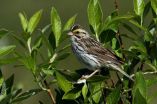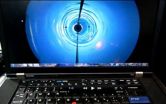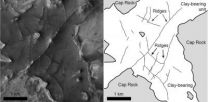(Press-News.org) One year after his last treatment, a six-year-old boy with recurrent neuroblastoma is in complete remission for his high-risk metastatic cancer. Doctors reported this case study in the January 2013 issue of Pediatrics, the journal of the American Academy of Pediatrics, which was funded in part by a joint grant from the Andrew McDonough B+ Foundation, Pierce Phillips Charity and Solving Kids' Cancer.
Current treatments for high-risk neuroblastoma patients include chemotherapy, radiation therapy, surgery, stem cell transplant, and immunotherapy. Less than half of the children survive in spite of the intensive and toxic standard therapy. Long term survival after a relapse is less than 5%.
Previous clinical trials in adult solid tumors have successfully used cancer-specific targets (NY-ESO-1, MAGE-A1, and MAGE-A3) to kill cancer cells. Now, scientists at the University of Louisville have used these same targets for neuroblastoma by creating a vaccine that causes the body's own immune system to attack the tumor cells. Dendritic cells are immune cells collected from the patient and grown in cultures after they are exposed to specific antigens. The dendritic cells "teach" the patient's T-cells to seek out and kill the cancer cells after they are returned to the patient through a series of injections.
Cancer treatment vaccines differ from other vaccines in that they treat active cancers or help to prevent recurrence. The principal investigator for this study, Kenneth Lucas, M.D., is the division chief of Pediatric Hematology-Oncology and Stem Cell Transplantation at the University of Louisville Department of Pediatrics. The funding provided critical support to further Dr. Lucas' ongoing work to find new treatments for neuroblastoma and other deadly childhood cancers.
In the case study, one year after the patient's last vaccination, the tumors cells that were located in the boy's bone marrow disappeared and he now shows no evidence of disease.
The study includes children with sarcomas as well as neuroblastoma, and will be completed in 2013.
For patients with relapsed neuroblastoma, there are few promising treatment options in clinical trials. More effective and less toxic treatments are desperately needed.
"This research builds on five years of pre-clinical research, which identified three new immunological targets that are specific to this pediatric cancer," said Scott Kennedy, the Executive Director of Solving Kids' Cancer. "The case study highlights the potential therapeutic progress that can be made against neuroblastoma, and brings hope to patients and their families in finding a lasting cure."
###
Andrew McDonough B+ Foundation
The Andrew McDonough B+ Foundation honors the memory of Andrew McDonough, founded by Andrew's mom, dad and sister. The overall goal of The B+ Foundation is to "Do Good." Providing financial assistance to families of children with cancer, The B+ Foundation has awarded over $500,000 to hundreds of families from around the country in their time of greatest need. The B+ Foundation also sponsors research to find cures for childhood cancers and advancements in chemotherapy. Information about the Foundation and its activities can be found at BePositive.org.
Pierce Phillips Charity
The Pierce Phillips Charity was founded in loving memory of our son, Pierce Alexander in June 2011. Our mission is devoted to the eradication of pediatric cancer through funding research and to improving the lives of the children and their families who are battling this disease. For more information, please visit Piercephillipscharity.org.
Solving Kids' Cancer
Created by two fathers who lost children to pediatric cancer, Solving Kids' Cancer is committed to significantly improving survivorship of the deadliest childhood cancers. 100% of all donations are used to find, fund, and manage clinical trials and scientific programs to rapidly develop more effective and less toxic treatments. Solving Kids' Cancer is a 501(c)(3) public charity. To learn more, please visit SolvingKidsCancer.org.
Dendritic cell vaccine for relapsed neuroblastoma patient induces complete remission
2013-01-29
ELSE PRESS RELEASES FROM THIS DATE:
Researchers find a better way to culture central nervous cells
2013-01-29
PROVIDENCE, R.I. [Brown University] — A protein associated with neuron damage in people with Alzheimer's disease is surprisingly useful in promoting neuron growth in the lab, according to a new study by engineering researchers at Brown University. The findings, in press at the journal Biomaterials, suggest a better method of growing neurons outside the body that might then be implanted to treat people with neurodegenerative diseases.
The research compared the effects of two proteins that can be used as an artificial scaffold for growing neurons (nerve cells) from the ...
BUSM study highlights attitudes toward HPV vaccination for boys
2013-01-29
(Boston)- A new Boston University School of Medicine (BUSM) study has found that low-income and minority parents/guardians were receptive toward vaccinating boys against Human Papilloma Virus (HPV). However, racial/ethnic differences emerged in attitudes regarding school-entry mandates. The findings appear online in the journal Clinical Pediatrics.
Although low-income and minority men have higher rates of oral HPV infection and are more likely to suffer from HPV-related diseases including penile, anal and oral cancers, few studies have examined parental attitudes after ...
Ants' behavior leads to research method for optimizing product development time, costs
2013-01-29
DETROIT – Trying to find just the right balance of time spent in meetings and time performing tasks is a tough problem for managers, but a Wayne State University researcher believes the behavior of ants may provide a useful lesson on how to do it.
Using computer simulations derived from the characteristics of ants seeking food, Kai Yang, Ph.D., professor of industrial and systems engineering in the College of Engineering, has developed a mathematical model-based methodology to estimate the optimal amount of time spent to develop a product, as well as the cost, in overlapped ...
Holocaust Edition: 'The Sources Speak'
2013-01-29
This press release is available in German.
A collection of historical documents from a major project funded by the Deutsche Forschungsgemeinschaft (DFG, German Research Foundation) will be made publicly available over the next several months and years. On 25 January 2013, German radio broadcaster Bayerischer Rundfunk will launch a 'documentary audio edition' entitled Die Quellen sprechen ('The Sources Speak'). The series of 16 episodes, to be broadcast on radio and made available online, will present hundreds of letters, diary entries, decrees, orders, newspaper reports ...
Personalized plans to address barriers to HIV drug adherence boost chances of successful therapy
2013-01-29
PHILADELPHIA – HIV patients who participated in an intervention that helped them identify barriers to taking their drugs properly and develop customized coping strategies took a significantly greater amount of their prescribed doses than those receiving standard care, according to a new study from researchers in the Perelman School of Medicine at the University of Pennsylvania. The results, published this week in JAMA Internal Medicine, may point to a new strategy to improve adherence to medications for many other conditions.
"Nonadherence to medical therapy is a silent ...
Cultural evolution changes bird song
2013-01-29
Thanks to cultural evolution, male Savannah sparrows are changing their tune, partly to attract "the ladies."
According to a study of more than 30 years of Savannah sparrows recordings, the birds are singing distinctly different songs today than their ancestors did 30 years ago – changes passed along generation to generation, according to a new study by University of Guelph researchers.
Integrative biology professors Ryan Norris and Amy Newman, in collaboration with researchers at Bowdoin College and Williams College in the U.S., analyzed the songs of male Savannah ...
'Moral realism' may lead to better moral behavior
2013-01-29
CHESTNUT HILL, Mass. — Getting people to think about morality as a matter of objective facts rather than subjective preferences may lead to improved moral behavior, Boston College researchers report in the Journal of Experimental Social Psychology.
In two experiments, one conducted in-person and the other online, participants were primed to consider a belief in either moral realism (the notion that morals are like facts) or moral antirealism (the belief that morals reflect people's preferences) during a solicitation for a charitable donation. In both experiments, those ...
New American Chemical Society podcast: Boosting the sensitivity of airport security screening
2013-01-29
The latest episode in the American Chemical Society's (ACS') award-winning Global Challenges/Chemistry Solutions podcast series reports a simple way to improve the sensitivity of the test often used to detect traces of explosives on the hands, carry-ons and other possessions of passengers at airport security screening stations.
Based on a report by Yehuda Zeiri, Ph.D., and colleagues in ACS' The Journal of Physical Chemistry C, the new podcast is available without charge at iTunes and from www.acs.org/globalchallenges.
In the new episode, Zeiri explains that most ...
NSF-funded team samples Antarctic lake beneath the ice sheet
2013-01-29
In a first-of-its-kind feat of science and engineering, a National Science Foundation (NSF)-funded research team has successfully drilled through 800 meters (2,600 feet) of Antarctic ice to reach a subglacial lake and retrieve water and sediment samples that have been isolated from direct contact with the atmosphere for many thousands of years.
Scientists and drillers with the interdisciplinary Whillans Ice Stream Subglacial Access Research Drilling project (WISSARD) announced Jan. 28 local time (U.S. stations in Antarctica keep New Zealand time) that they had used a ...
Fossilized conduits suggest water flowed beneath Martian Surface
2013-01-29
PROVIDENCE, R.I. [Brown University] — Networks of narrow ridges found in impact craters on Mars appear to be the fossilized remnants of underground cracks through which water once flowed, according to a new analysis by researchers from Brown University.
The study, in press in the journal Geophysical Research Letters, bolsters the idea that the subsurface environment on Mars once had an active hydrology and could be a good place to search for evidence of past life. The research was conducted by Lee Saper, a recent Brown graduate, with Jack Mustard, professor of geological ...




